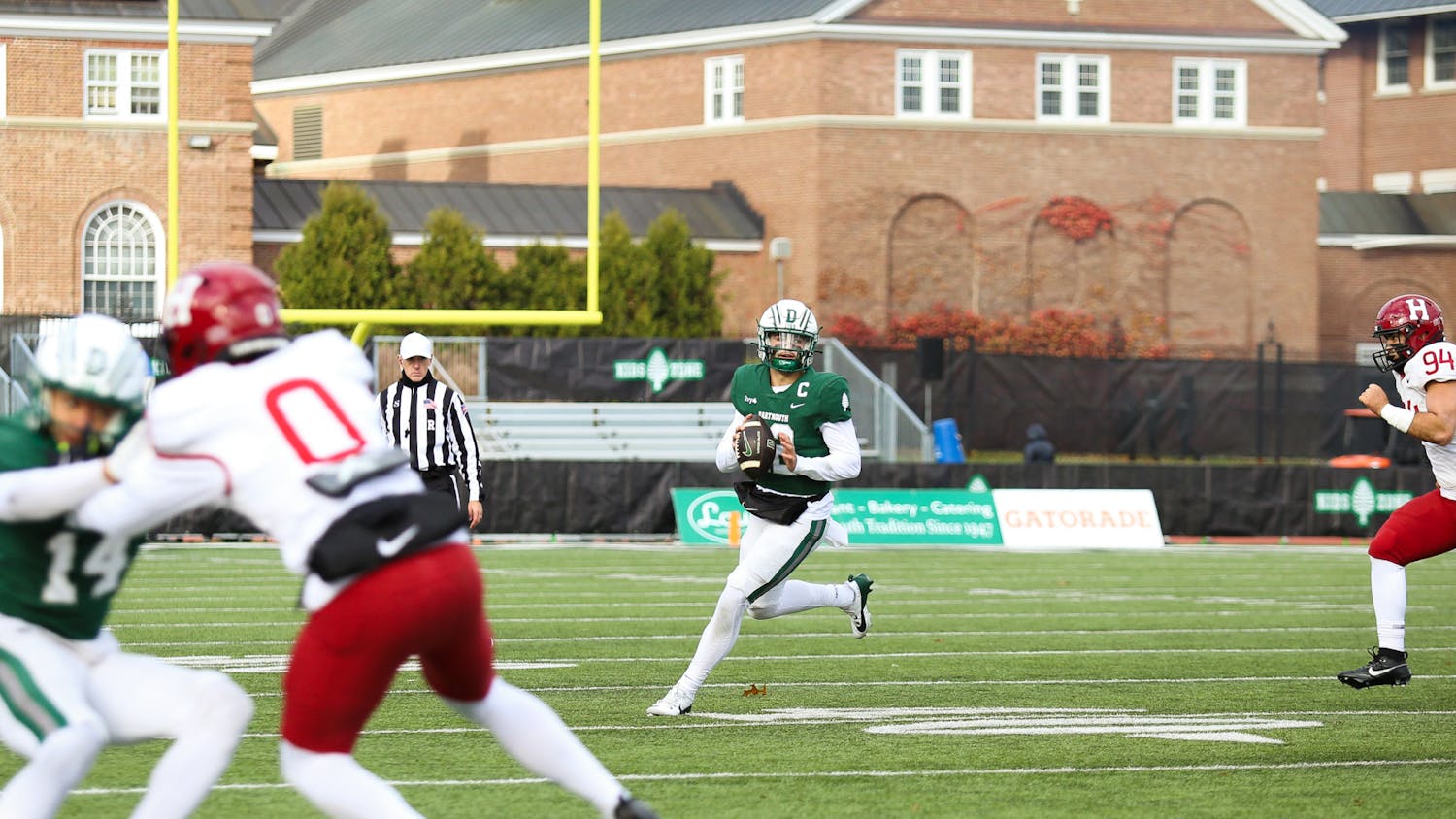Last month, President Donald Trump signed an executive order aiming to promote free and open debate on college campuses. A group of conservative student activists, including Dartmouth College Republicans president Joshua Kauderer ’19, was invited to witness the signing of the order, which took place on March 21.
The order emphasizes the need for colleges to uphold and follow the principles of the First Amendment and directs 12 agencies to work with the Office of Management and Budget to ensure that colleges and universities receiving federal funding are acting in accordance with the law and their own policies regarding free speech on campuses.
The College’s Freedom and Expression of Dissent regulations state that Dartmouth “prizes and defends the right of free speech” and “fosters and protects the rights of individuals to express dissent” as long as the exercise of this right does not “deny the same rights to any other individual.” The policy adds that protest and demonstration “shall not be discouraged” as long as there is no threat or use of “force” and the “orderly processes of the College are not deliberately obstructed.”
In an e-mail statement to The Dartmouth, College spokesperson Diana Lawrence wrote that the executive order reaffirmed the College’s commitment to these principles, saying that Dartmouth has “long encouraged” debate and dialogue even in situations that are “difficult or disagreeable.” The statement did not address what, if any, substantive effects the executive order would have on Dartmouth’s campus.
Laura Beltz, a policy reform program officer at the Foundation for Individual Rights in Education said that the order will require private colleges to adhere to their stated rules regarding free speech.
“Dartmouth does promise its students free expression, and it seems like the order will hold private schools to those promises,” she said.
Kauderer said that the act “is not very specific.” He added that because of the large number of agencies named in the act, actual implementation of its principles may be difficult. Beltz similarly said that the impacts “will depend on how the various federal agencies carry out the order,” which still remains to be seen.
However, Kauderer said that the act may have a “hortatory” effect by signaling that the Trump administration cares about the state of free expression on college campuses.
Speaking to the necessity of the order, Kauderer said that generally “conservative ideas are welcomed on campus,” citing the fact that the College Republicans are able to host conservative speakers and exist as a club.
“Institutionally, [Dartmouth] is in a good place… so long as it lives up to its principles of community and its principles on dissent and free speech,” Kauderer said.
He added that the greater threat to diverse discourse on campus comes from a sort of “self-censorship,” as conservative students are hesitant to share their views in the classroom out of fear that they would be “deemed offensive to other students.”
Despite Kauderer’s perspective, the College received a “red light” free speech rating from the Foundation for Individual Rights in Education last year because of its “Acceptable Use Policy,” which FIRE claimed might ban categories of speech entitled to First Amendment protection at a public university.
President of the Dartmouth College Democrats Gigi Gunderson ’21 said that while she sympathizes with conservative students’ position as an “intellectual minority” on campus, she does not view the executive order as a potential solution.
“I think it’s an executive order that is trying to get at a larger cultural issue, which is that oftentimes conservative students feel like their voices are not welcome,” she said.
Gunderson echoed Kauderer in saying that the order is “really vague” and “it’s going to be differently implemented on every campus.”
Gunderson added that the order will likely not “solve the problem it’s trying to address.”
Aside from issues of free speech, the order also includes provisions aimed at educating students and families about the costs and benefits of higher education. It also attempts to increase access to information about federal student loans and payment options.
Kauderer said this aspect of the order is often overlooked, but “it’s nice that the President is looking out for this core issue.”
Gunderson said that while the order’s language on student debt and financial transparency was “great,” it failed to address “underlying causes” of problems regarding access to higher education.



